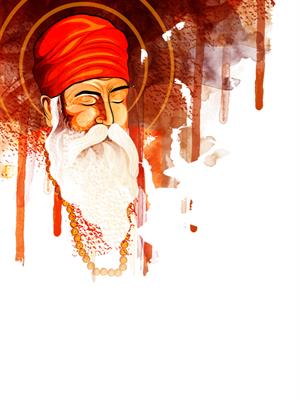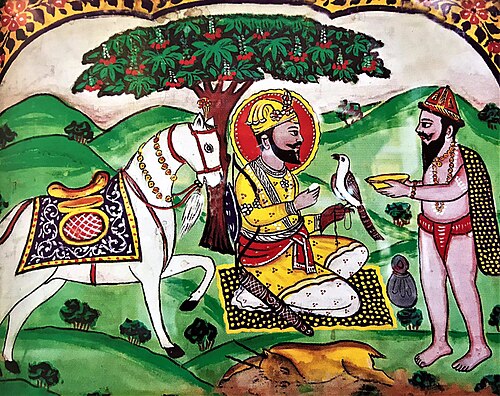NIHALU CHADDHA, BHAI, was a devoted Sikh who lived in Agra. Once he, accompanied by Bhai Saktu Mahita, visited Amritsar to pay obeisance to Guru Arjan. According to Bhai Mani Singh, Sikhdn di Bhagat Maid, they sought instruction saying, "Some believe that liberation is not possible without virtuous actions; there are others who assert that all action is merely temporal and that spiritual knowledge or insight, gidn (jndna), alone is the means of attaining liberation.
Neki, Jaswant Singh, one of the prominent Punjabi poets, was born in 1927. As a psychiatrist, he presents modem psychological insights through his experimental poems. He penetrates to the fundamentals of existence and through a lucid style recaptures vividly its subtle patterns and concepts. He is predominantly a poet of mystery in life. The poet in his poetry seems to be endeavouring to reveal and unveil what is mysterious in man\'s life.
BENI, BHAGAT is one of the fifteen saints and sufis some of whose compositions have been incorporated in the Guru Granth Sahib. Very little is known about his personal life except that he spent most of his time in prayer and contemplation. Nabhaji`s Bhagatmal, which includes him in its roster of well known bhaktas or devotees, narrates a popular anecdote about how Beni absorbed in meditation often neglected the household needs and how the Deity himself intervened and physically appeared to help him. Bhai Gurdas (Varan, X. 14) has referred to Bern`s single pointed meditation in solitude enriched by moments of spiritual edification. Bern`s three hymns in the Guru Granth Sahib are marked by an intense spiritual longing.

BHAKTI AND SIKHISM. The word bhakti is derived from Skt. bhaj, meaning to serve, honour, revere, love and adore. In the religious idiom, it is attachment or fervent devotion to God and is defined as "that particular affection which is generated by the knowledge of the attributes of the Adorable One." The concept is traceable to the Vedas where its intimations are audible in the hymns addressed to deities such as Varuna, Savitra and Usha.
BRAHMO SAMAJ. The expression "Brahmo Samaj" (correct transcription, "Brahma Samaja") literally stands for a society of the worshippers of Brahman, the Supreme Reality, according to Hindu philosophy. It is the name of the Theistic Church founded by Raja Rammohun Roy (1772-1833), in Calcutta on 20 August 1828. The history of the movement leading to the foundation of this "house of worship" is intimately bound up with that of the individual career of Rammohun Roy.







